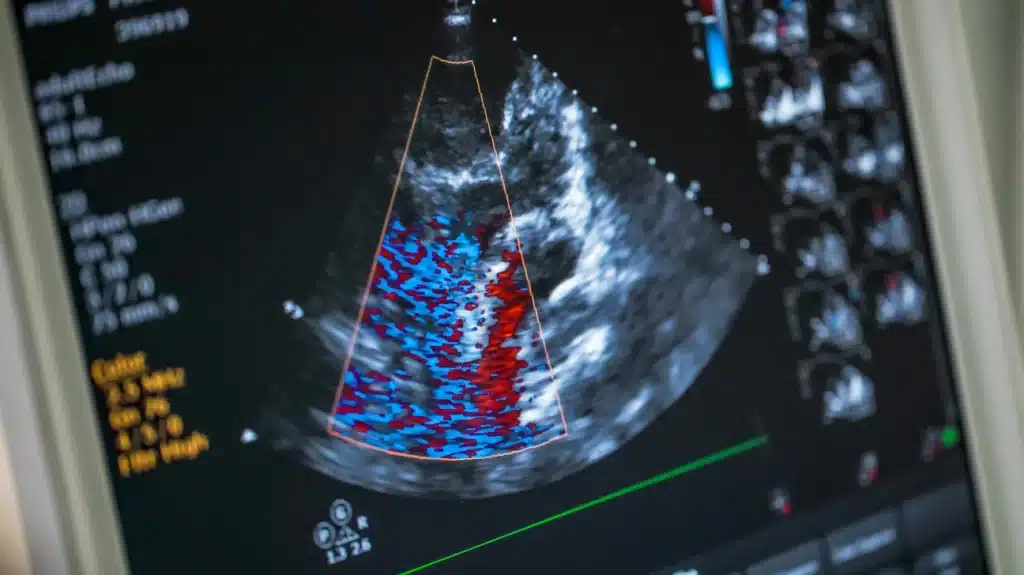
Echocardiograms, also known as cardiac ultrasounds, are valuable diagnostic tools used to assess the structure and function of the heart. They can help diagnose a wide range of cardiac conditions, including:
Heart Valve Disorders: Echocardiograms can detect abnormalities in the heart valves, such as stenosis (narrowing), regurgitation (leakage), or prolapse. These conditions can affect the flow of blood through the heart and may lead to symptoms like chest pain, shortness of breath, or fatigue.
Cardiomyopathies: Echocardiography can identify abnormalities in the heart muscle, including hypertrophic cardiomyopathy (thickening of the heart muscle), dilated cardiomyopathy (enlargement of the heart chambers), and restrictive cardiomyopathy (stiffening of the heart muscle). These conditions can impair the heart’s ability to pump blood effectively and may result in heart failure.
Congenital Heart Defects: Echocardiograms are essential for diagnosing congenital heart defects, which are structural abnormalities present at birth. These defects can affect the heart’s chambers, valves, or blood vessels and may vary in severity from mild to life-threatening.
Pericardial Diseases: Echocardiography can detect abnormalities in the pericardium, the sac surrounding the heart. Conditions such as pericarditis (inflammation of the pericardium) or pericardial effusion (accumulation of fluid around the heart) can be diagnosed using echocardiograms.
Cardiac Tumors: Echocardiography can identify tumors or masses within the heart, including benign tumors like myxomas or malignant tumors like sarcomas. These tumors may affect the heart’s function and may require further evaluation and treatment.
Aortic Aneurysms and Dissections: Echocardiograms can visualize the aorta, the main artery that carries blood from the heart to the body. They can detect abnormalities such as aortic aneurysms (enlargement of the aorta) or aortic dissections (tears in the aortic wall), which can be life-threatening if not promptly diagnosed and managed.
Overall, echocardiograms play a crucial role in diagnosing and evaluating various cardiac conditions, guiding treatment decisions, and monitoring patients with heart disease. They provide detailed and real-time images of the heart’s structure and function, helping healthcare providers deliver optimal care to patients with cardiac disorders.
Who needs an echocardiogram?
if you have any of this symptoms, we recommend you have an echocardiogram
- discomfort or pain in your chest
- palpitation or a beating heart
- shortness of breath during exercise or sleep
- medical history of diabetes or high blood pressure
- history of stroke or TIA
- Bruit or abnormal muffling sounds in the heart
- abnormal findings in your ECG
What are the most common findings in your echocardiogram ?
Would I need a blood test?
What does the echocardiogram included?
- Take your relevant medical history
- Investigate your Heart muscle, valves, and surround layers with an Ultrasound
- Explain all findings during and after your scan
- Write an official scan report after or within 24 hrs, with appropriate images included in the report
- Recommend a follow-up echocardiogram if necessary
- Offer GP or specialist referral and a Blood Test if needed